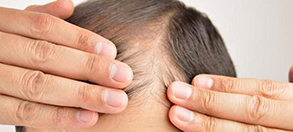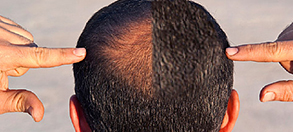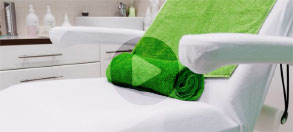From early childhood, people are taught about the importance of personal cleanliness and how to achieve it. The steps taken to obtain and maintain this cleanliness are referred to as personal hygienic practices or hygiene. When a person is tending to their hygienic needs, it typically involves washing the skin and hair. When done properly, proper hygiene plays a critical role in maintaining good health by reducing the spread of infectious disease and illness and minimizing allergies. In addition, proper hygiene is also important to one’s self-esteem, confidence, and personal appearance.
Hair
Keeping one’s hair clean is important more for social reasons than for health. Dirty, unkempt hair can be visually distasteful and may even develop an obnoxious odor. This is often due to a buildup of oil on the scalp from the sebaceous glands. Bacteria feeds on this buildup, resulting in odors. When this buildup of oil is not removed, it can weigh down the hair and make it greasy. It can also contribute to a flaky scalp that can be caused by either too much or too little oil. A dry scalp often results in the appearance of dandruff, and in terms of appearance, it can be visible throughout the hair and fall onto the clothing, creating an unseemly appearance. To avoid dirty or oily hair, one will need to cleanse it, typically using shampoo. Daily shampooing isn’t always necessary, as some people can shampoo every other day or even once a week. The frequency of shampooing depends on how quickly a person’s hair tends to become oily or dirty. People with tightly curled hair, such as African-American hair, for example, can shampoo once weekly, as the hair’s natural oils travel more slowly along the shaft. In cases such as this, daily hair-washing can make the hair overly dry, as it strips away the oils too quickly.
- Personal Hygiene: Hair
- Taking Care of Your Hair
- When it Comes to Shampoo, Less is More
- How Often Do You Really Need to Shampoo?
- Ten Things You Didn’t Know About Shampoo
- Hair Hygiene
- How to Shower Your Way to Perfect Hair
- It Turns Out You’ve Been Washing Your Hair All Wrong
- You Should Wash Your Hair Every Other Day
Hands
Dirty hands are one of the primary contributors to the spread of disease and illness. Hands come into contact with the skin of others, viruses, bacteria, and more. Hand-washing is necessary before cooking and after touching raw foods or using the bathroom. People who are ill should wash their hands any time they sneeze, cough, or wipe their nose. To clean the hands, soap and warm water are necessary. Simply wet the hands with the warm or hot water and use the soap to build up a lather. Work the soap lather into the hands, front and back and between the fingers. Continue scrubbing the hands and nails for no less than 15 seconds before rinsing thoroughly with the water. Other times when it is important to wash one’s hands include after touching a pet or handling money, both of which are extremely dirty.
- Hand-Washing, The Most Effective Way to Prevent Disease Transmission
- Hand-Washing
- Red Cross: Hand-Washing (PDF)
- Adult Health: Hand-Washing Do’s and Don’ts
- Wash Your Hands
- Personal Hygiene
- Stop Germs, Stay Healthy, Wash Your Hands (PDF)
- Clean Hands Save Lives (PDF)
- What’s the Simplest Way to Protect Yourself? (PDF)
Body
As the body’s largest organ, the skin must be taken care of much more than hand-washing allows. The entire body requires regular cleaning by way of showering or bathing in order to remove dirt, grime, perspiration, and any potentially harmful substances waiting to enter the body. The shedding of dead skin cells is yet another reason why bathing is important. When left unclean, the body becomes a breeding ground for bacterial growth. This growth can result in body odor or infection. Ideally, people should bathe regularly at least once every day or every other day. The frequency of how often a person bathes depends on a number of factors, such as how much they sweat, for example. Parts of the body that require the most attention in terms of cleanliness include the groin, underarms, and face. Soaps and shower gels are generally used for cleansing the body, as they stick to dirt, dead skin cells, and oils and rinse away. To prevent drying out the skin, take warm showers versus overly hot ones and avoid lingering in the water. The use of lotion or skin moisturizer on damp skin can also help prevent the skin from becoming overly dry.
- What Are Your Personal Hygiene Habits?
- Skin Hygiene: Why?
- Personal Hygiene (PDF)
- Are Long, Hot Showers Bad for Your Skin?
- Daily Shower Bad for Your Skin? Try the Soak and Smear
- Seven Daily Hygiene Sins
- Dry Skin
- Smart Bathing Techniques Can Help With Dry, Itchy Winter Skin
- Experts Say You Probably Don’t Need to Shower Every Day
- How Many Times a Week Should One Bathe?


